It’s a testament to the efficiency and beauty that is Nature, that simple kitchen materials paired with other items break down into beautiful, glorious dirt. To be honest, however, I’ve been a reluctant, even doubtful composter and it wasn’t until I happened upon our neglected compost pile in the woods and found the subsequent compost that I decided to give composting another shake.
I’ve been an avid gardener for the last 10 years or so and one who’s willing to try most plants—some fated to an untimely death in my harsh growing zone (2-3)—but as I mentioned above, I’ve dragged my feet on composting. Oh, I’ve tried several times and even bought a black, plastic composter that I ended up giving away. I pretty much gave up on composting until last fall as I was prepping my beds for spring, and I, on a whim, decided to check out the pile in our woods where we’d been dumping garden waste, chicken waste, and occasionally some kitchen waste. I was amazed at the soil I found: light, beautiful, and sweet smelling.
Maybe I’m describing you above. You know that compost is the bomb, so to speak, but you’re not exactly sure what you’re supposed to do. And so you drag your feet, guiltily tossing kitchen scraps into the garbage while knowing that you could be composting them, but you don’t have a special compost bucket, or a special bin, or a this, or a that. And yet…
So this post is for you, the reluctant composter, the one who believes in composting but isn’t quite sure where to start or what to do. Of course, I’m basing this entirely off my own experience, and so feel free to take it with a grain of salt. But I promise you, the myths I outline below are most definitely myths and ones that need not hinder your composting efforts any longer.
Myth 1 // Composting is hard.
I, a researcher to my core, did some reading on the topic of composting. This ended up being a mistake. I checked out a book from my local library, eager to read up on the issue and honestly I ended up being utterly overwhelmed and ultimately deterred from creating a composting system. Intimidated by the getting the ratio of green to brown “right” so that I had a properly functioning system, one that was aerobic rather than anaerobic, I just hung on to the book with the hope that maybe I could figure out what I was doing. In reality, the book ended up being so overdue that I received a billing notice from the library with a tart note from the librarian noting that surely the “compost bin was built by now.” Little did she know.
Reality // Composting is not hard.
The truth is composting is not hard and you’re really not going to get it “wrong.” Eventually, materials with break down into the coveted “black gold.” The only thing that might vary is how long it takes materials to break down, but eventually they will.
Myth 2 // Composting is smelly.
I was a reluctant composter too, because I thought that the compost would be smelly—especially when I read about anaerobic composting and the ammonia smell that often accompanies an anaerobic compost pile. I also wasn’t too keen on the idea of having smelling, rotting vegetables under my sink, and having things growing in there. Yuck!
Reality // Composting isn’t smelly.
I’ve been saving vegetable scraps, coffee grounds, egg shells, and other kitchen waste for the last six months in a plastic bucket under my sink; when it’s full, usually in a week or so, it’s dumped on the (currently makeshift) compost pile outside my back door. There has been zero stench emanating from underneath the kitchen sink, and there’s no need for a “pretty” ceramic or stainless steel compost bucket unless you really, really want one. I like pretty so “pretty” is a legit enough reason to buy one, in my opinion.
Myth 3 // Composting requires a lot of maintenance.
Again, this is where reading the book I described above was actually to my detriment rather than benefit. In reading the book, I thought that again I would need to maintain the pile with turning everyday and watering.
Reality // Composting requires some maintenance but not a lot.
Remember what I said above, and my surprise at finding the beautiful compost in my woods in a pile I had done nothing to? Composting doesn’t really require any maintenance, but turning it regularly and watering it periodically speeds up how quickly the items break down.
Myth 4 // Composting requires “special” composting tools.
When I considered composting initially, I thought I needed a dedicated bin, barrel, wire enclosure, or what have you to successfully compost. So I ended up purchasing a black, plastic compost bin that was unsightly, difficult to use, and actually reinforced my impression that composting was “hard.”
Reality // Composting does not require “special” composting tools.
You can have a successful composting system by digging a hole in the ground and dumping your scraps there (things will take a bit longer to break down) or simply start piling things in your woods, like I did. Again, it becomes a question of how long things will take to break down, but you can compost successfully with little effort. Given that I’m an avid gardener and now a recent convert to composting (more on that below) my garden plans this season include an “real” composting system, one that I’ll turn and water periodically, to speed up decomposition.
Myth 5 // I can buy the same product at the home improvement store.
So this one I can’t prove definitively, and I have access to good dirt through a local source: rotted manure and other goodness. I’ve also purchased bags of compost from the hardware store or home improvement store. And it’s been fine and generally done what I’ve needed it to do.
Reality // You can’t buy the satisfaction of true DIY compost
When I stumbled upon the compost in my woods I was amazed. First, it was unexpected. Second, it was absolutely beautiful: light, lovely, and sweet smelling. And while I can’t prove or even accurately speculate about the nutritional value of store-bought vs. homemade compost, the satisfaction is most certainly a reward in itself. That, and you didn’t have to spend. any. money.
A (very!) Basic Composting Guide:
What exactly can you compost? Honestly, you’d be surprised. You compost the obvious items: vegetables trimmings, leaves, garden waste, straw, and other similar sorts of things, but you can compost far more items that the ones outlined above. For a more comprehensive list, (100 items!) check out this post from Small Footprint Family.
There are also some things to avoid, like meat and dairy products, human waste, etc.: again for a more comprehensive list (30 Items!) check out this post from Mother Nature News.
A compost pile works best with a combination of green and brown elements. An optimized compost pile needs both green (nitrogen-rich elements) and brown (carbon-rich elements). The photo below shows some examples of brown elements—on the top—and green elements—on the bottom.
Suggested Composting Process
If you can, work in layers: brown then green, with some dirt thrown in. Then repeat. You can also just throw stuff on the pile, like I did, and you’ll eventually be rewarded with “black gold.”
If you can, turn the pile periodically to speed up the decomposition.
If you can, keep it moist, but not wet. In reading on the subject, (not the original book!) I’ve discovered that some people suggest using human urine to moisten the pile. Apparently, it’s collected, diluted, and then tossed on the pile. For myself, I’m not sure I’m there yet…
A optimized compost pile will actually be warm/hot as it works to decompose the various elements, which is totally cool, and the heat kills the nasty stuff. Awesome!
Where does this leave you, the reluctant composter?
Encouraged, I hope to try (or retry!) your hand at composting. Know that pretty much, you’re not going to mess it up, and that it’s simply a matter of time before your trash becomes treasure.
To glorious spring, friends!


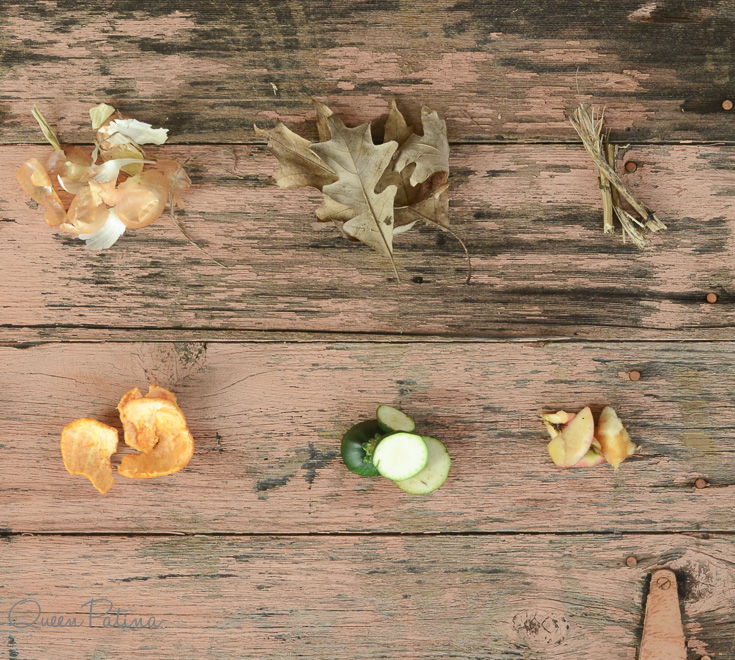
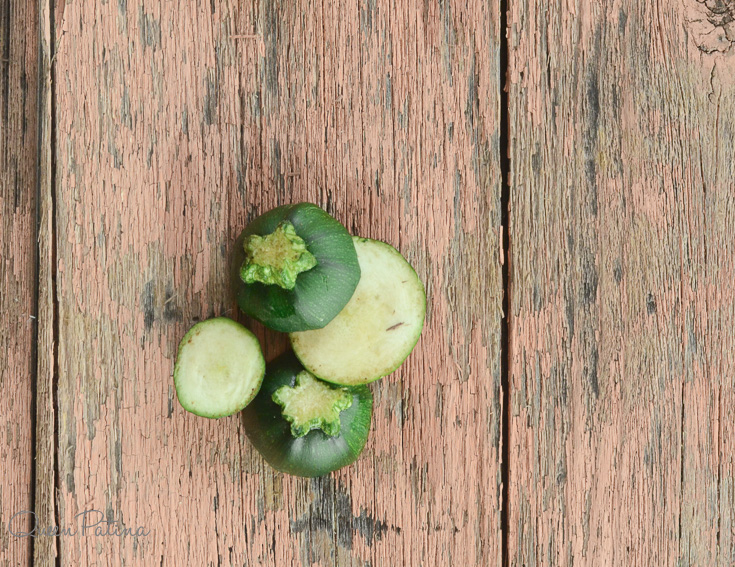
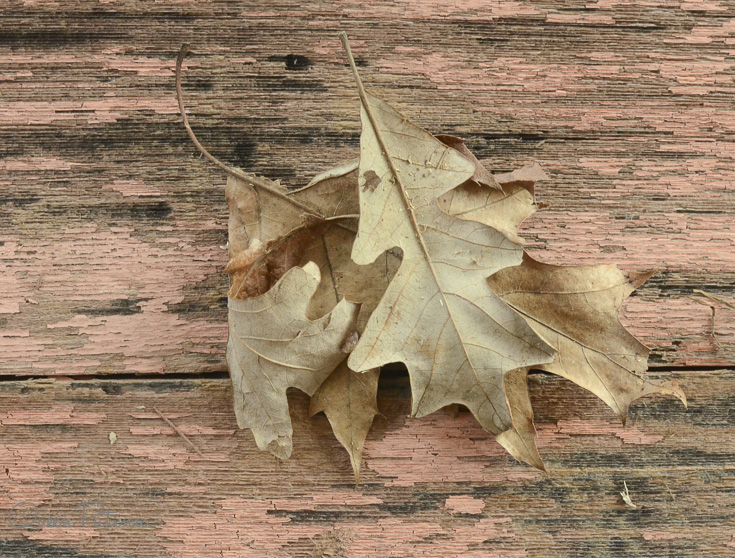
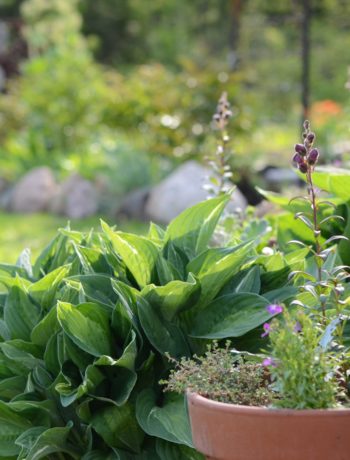
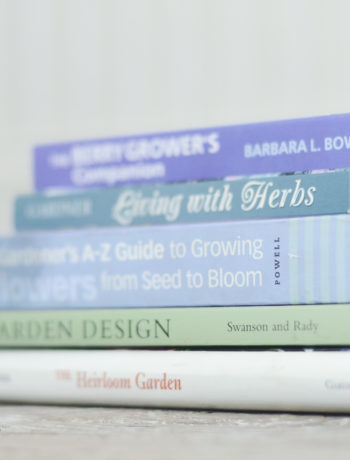
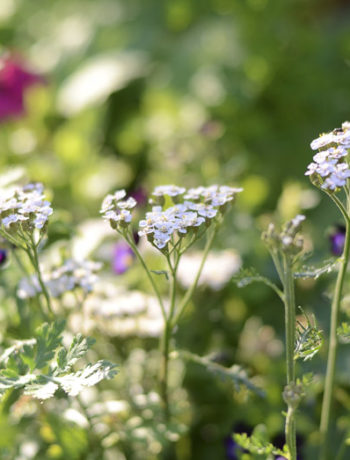
2 Comments
Sara (WormeWoole)
March 28, 2016 at 9:35 AMGosh, the Queen can even make compost look pretty! I have been a compost believer (and maker) for a long time and I appreciate your debunking of compost myths that beginners and wanna-bes (like your former self) struggle with because they are real concerns that don’t have to be, as you so clearly explained.
Queen Patina
March 29, 2016 at 11:51 PMAw, thanks, Sara! I’m super excited–now especially with the weather starting to turn more spring-like–to build myself a “real” compost bin… 🙂